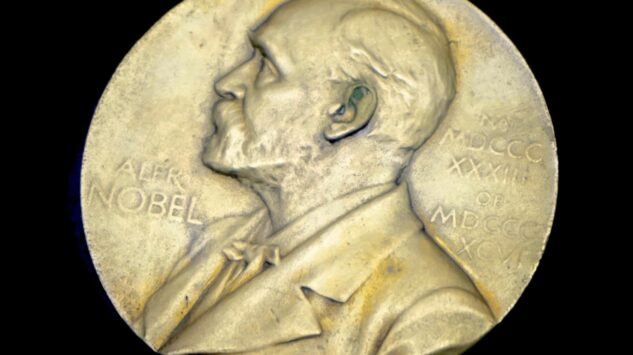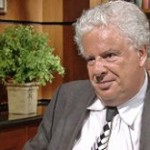Issue Briefs

A tribute to David Trimble: A Nobel Peace Laureate Worthy of the Award
Martin Sieff
August 02, 2022
I got to know David Trimble quite well on his many visits to Washington during the completion of the negotiations that led to the 1998 Good Friday Agreement and through its implementation in the years after. In those years I was first Chief Foreign Correspondent at The Washington Times and then National Security Editor and Managing Editor, International Affairs at United Press International(UPI).
And since I am from Northern Ireland and worked there as a young journalist and news editor on the two main newspapers in Belfast from 1980 to 1985, I was automatically delegated to cover the Irish Peace Process beat on both news organizations.
Many meetings with Trimble
In those capacities, I got to know Trimble well and often dined with him. I was his “minder” and interlocutor at both The Washington Times and UPI over the years. And I came to have the highest regard and respect for him. He was not a warm or generous or open man. He was the living embodiment, even the caricature, of the proud, upright, honest and honorable but unbending Protestant rural Ulsterman. And he despised the universal American – and now alas also British – essential trait of politicians to smile endlessly, pretend to be sincere and fake compassion.
No effort to ingratiate himself
Trimble never tried to ingratiate himself to the American – or for that matter British – press and media. He did not hate them or even despise them so much as regarded them as irrelevant. He would state his positions or conditions clearly. He made no attempt to spin them or to charm his audiences. Any interaction between him and President Bill Clinton would have been worthy of dramatization by a satirist of the caliber of Alan Bennett, or P J O’Rourke.
I once had to explain to him that I could not go back to UPI and tell the President of the Company that we had entertained a Nobel Peace Laureate by giving him only a cup of tea at a Union Station restaurant because he did not want to waste money. It was only with the greatest reluctance that he accepted the offer of a free scone
He kept his word
He was provincial rural Ulster at its best. Someone who appeared at first incredibly limited and intolerant but who went an awfully long way. And who always strove his utmost to keep his word, honor his commitments and make the agreements he had committed his cause to successfully work.
It is now almost a quarter of a century since the Good Friday Agreements were signed. British Prime Minister Tony Blair and an endless array of extremely minor Northern Irish politicians and functionaries got elevated to the House of Lords largely on the basis of saying a few appropriate cliches at the right times continue to dine out to this day on their Marshall McLuhan 15 Minutes of Fame.
Few deserve praise
But in my judgment, the three key figures who went the furthest, made the greatest effort and deserved all the praise are now gone: They are my dear friend Mo Mowlam, then British Secretary of State for Northern Ireland, Sinn Fein Number Two Martin McGuinness, who did so much for so long afterwards to make Power-Sharing work, and David Trimble himself.
Trimble succeeded in bringing the core of the Ulster Protestant Unionist rural community to accept the peace process and power sharing with the Catholic nationalist community in Northern Ireland where no one else ever had. His true – and worthy – successor for many years afterwards was Peter Robinson of the Democratic Unionist Party.
Trimble’s merit
Trimble succeeded where more aristocratic leaders and socially eminent leaders of the Unionist community like Captain Terence O’Neill and Major James Chichester-Clark, and supposedly more cunning and brilliant ones like Brian Faulkner had failed disastrously back in the 1960s and 1970s.
Trimble succeeded for the same reason he was so underestimated and even despised by the supposed political literati in London and Washington: He was a genuine, rural, provincial middle class Ulster Unionist. He was no outsider to his constituency. His reputation had been of being something of a hardliner and “Know-Nothing” which propelled him into the leadership of the Ulster Unionist Party. He could speak to his own people from within. He was one of them.
He could deliver
They did not like what he had to say: They found the medicine he offered to end the 30 year conflict bitter. And they abandoned him and his Official Unionist Party almost as soon as the agreement was signed. But they followed him through on agreeing to it and making it work.
There may never be any striking statues or buildings dedicated to David Trimble in Northern Ireland, But he is worthy of them far more than the greedy, cynical religious and political demagogue and showman the Rev Ian Paisley who stirred needless sectarian hatreds for 60 years before cynically selling out for his own empty peerage in the British House of Lords.
Trimble’s greatness
Trimble got a peerage too, but his Nobel Peace Prize, which he shared with nationalist Social Democratic and Labour Party leader John Hume in 1998, was a better measure of the man and his achievement. And Hume’s prize should truly have gone to Sinn Fein leader Gerry Adams.
I would not say that Trimble “grew” so much as recognized the necessities of a changing world: There was greatness in that.
And when it came to courage, integrity and sheer honest Ulster grit, David Trimble was never lacking, never used it up, never ran short. And there was definitely greatness in that too.
 |
Martin Sieff is a Global Policy Institute Fellow. He is author most recently of Gathering Storm: The Seventh Era of American History and the Coming Crises That Will Lead to It. |